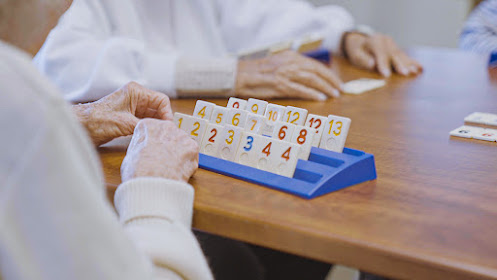5 Signs Your Senior Parent Needs Assisted Living
Nobody knows mom and dad like you do. Which means you will most likely be able to tell if they’re having an “off” day or if there is something else going on. Adult children are often the best at picking up on senior health, mobility and memory care issues first because they can accurately determine whether the behavior in question is just a personal quirk or a real indicator for a higher level of care. If you’re unsure of what types of behaviors to look out for, please refer to our 5 major signs that your senior parent may need assisted living below.
- Uncharacteristic neglect of home maintenance/housekeeping: If your loved ones are known for the pride they take in their home and garden, a lapse in this care can be a sign they are no longer coping. Ignoring excess clutter, the garden overgrowth, and home maintenance issues can also increase the risk of falls and injuries in the home. If you suspect they feel overwhelmed, offer to help out with certain tasks, but if your parents can’t seem to regain control over their home it may be time to suggest assisted living.
- Bills aren’t being paid – or are being overpaid: An occasional lapse or moment of confusion is understandable when it comes to a person’s finances, but if you notice bills starting to pile up or your loved ones making other financial errors, it is right to feel concerned. Managing your own money is a hallmark of independence, so this may be a difficult conversation to have, especially with parents, but it is important to help your parents trust that they can have help handling their finances.
- Weight loss: This can be linked to a number of issues, such as grief, depression, and fear of driving or leaving the house. Stay on the lookout for spoiled food, empty fridges or an unwillingness to leave the house to run errands such as grocery shopping. Identifying the issue can help your parents manage their health and stress.
- Uncharacteristic, inappropriate behavior: This covers a wide range of issues from odd conversations, forgetting to dress properly and decreased personal hygiene, to paranoia, accidentally taking too much medication and notably increased forgetfulness (like burning food on the stove, etc.).
- A serious medical diagnosis: Medical conditions such as dementia and Alzheimer’s will affect your loved ones’ ability to cope with day-to-day activities and permanent caregiving is key to slowing the condition’s progression and ensuring their quality of life. While you may be able to assist in the early stages, it’s important to remember that qualified professionals such as those at Lester Senior Living memory care residences are available to provide additional compassion and support.
If you are worried about your parents or aging loved ones, a gentle conversation is often the best first step to help determine if they need daily assistance and what support is available to them.
Compassionate memory care and community assisted living
At Lester Senior Living of New Jersey, our priority is to deliver affordable, expert assisted living and independent living services to seniors based on their individual needs. With residential apartments designed for optimal access and mobility, meal programs and 24-hour medical and security services, we help our residents to live full lives while retaining their independence. We also have a great selection of social programs, classes, events and trips, as well as advanced memory support services for Alzheimer’s and dementia residents.
For more information on our assisted living communities and memory care services, contact us today or visit our website at: https://jchcorp.org/




Comments
Post a Comment